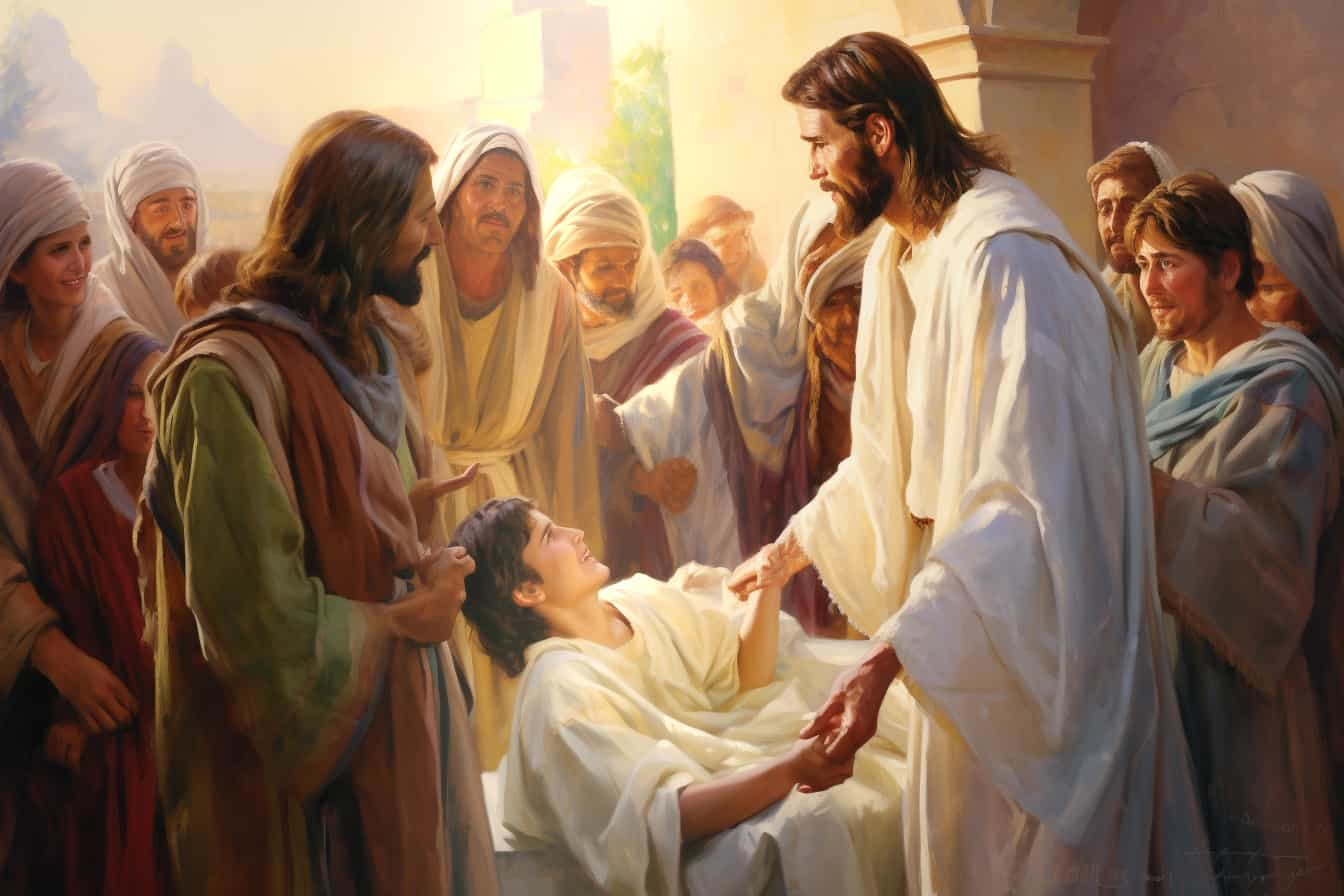Discover Jesus \ Events \Nain and the Widow's Son
Tag
Nain and the Widow's Son
While in Nain, Jesus encountered a funeral for a widow's son. Upon seeing the boy, Jesus discerned he was merely asleep, not dead, and woke him, causing townspeople to mistakenly believe he performed a resurrection.

Table of Contents
Summary
By March of 28 CE, Jesus’ reputation as a healer and miracle worker had become an obsession throughout Galilee. He was followed by the sick and the curious, and many of these afflicted ones returned to their homes, convinced that Jesus had healed them.
When Jesus and his apostles entered the city of Nain, they encountered a funeral procession carrying the son of a well-known widow. When she recognized the Master, she implored him to bring her son back from death. But, when Jesus looked at the boy, he perceived that the lad was not dead, only asleep. And he told the mother that all was well. He spoke to the boy, telling him to wake up, and the boy did so, causing near panic among the townspeople. They were convinced that Jesus had raised the boy from the dead.
Jesus tried and tried to convince them that the boy was not really dead but asleep. But the crowd would not believe him. Even his apostles had a hard time believing the truth, but he eventually convinced them enough that this account of miraculous healing was left out of the gospels, except for the gospel of Luke, who heard the story from someone else.
Nain and the Widow's Son
A frenzy regarding Jesus had developed among the people of Galilee. Everyone remembered the events of the wedding at Cana and the healing at sundown. When Jesus was traveling to Nain in March 28 CE, he was followed by a great multitude of curious people and believers. Many people who suffered from mental and emotional disorders came into the presence of Jesus at this time and returned home, announcing that Jesus had healed them.
Upon entering the city of Nain, a funeral procession was winding its way towards the cemetery, bearing the only son of a town widow. She was well-known, so nearly half the town was in attendance. When the funeral procession encountered Jesus, they recognized him, and the widow asked Jesus if he would bring her boy back from the dead. By this time, the people thought that Jesus could do anything, even resurrecting the dead.
Jesus went to where the boy was on the funeral platform; he lifted the covering and examined the boy, only to discover that the boy was not dead at all. He understood that allowing the mother to believe her son had died would create a worse tragedy, so he said to her: "Weep not. Your son is not dead; he sleeps. He will be restored to you." He took the young man’s hand and said, "Awake and arise." And the boy sat up and began to speak.
Jesus tried to explain to everyone there that the boy had not been dead, but his efforts were in vain. The people who witnessed this scene were convinced that a miracle of resurrection had occurred, and they were in an emotional frenzy. Many were fearful, some were in a panic, and many resorted to praying and crying over their sins. It was long after nighttime before the people would return to their homes. And even though Jesus kept repeating that he had not raised the boy from the dead, the people thought he was just being characteristically modest about his miracles.
The story of the widow’s son was repeated throughout Galilee, and many who heard about it believed it. Jesus could not even make his apostles believe the truth. But he did convince them to the point that the story was left out of all the biblical records except for the gospel of Luke, who related it as he heard it from someone else.
Jesus left the next day for Endor.
Suggested Reading from this Essay

Related People
Jesus
Son of God, Son of Man. Creator Son of the Universe.
The Twelve Apostles
The chosen followers of Jesus.
Related Topics
Jesus' Miracles
An overview of 25 extraordinary events from 26-30 CE.
Contributors
MaryJo Garascia, Mike Robinson, Gary Tonge
